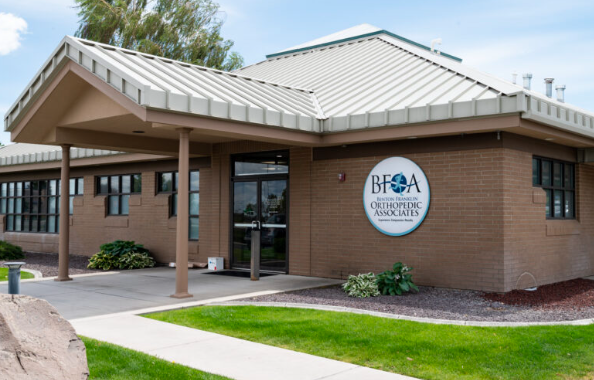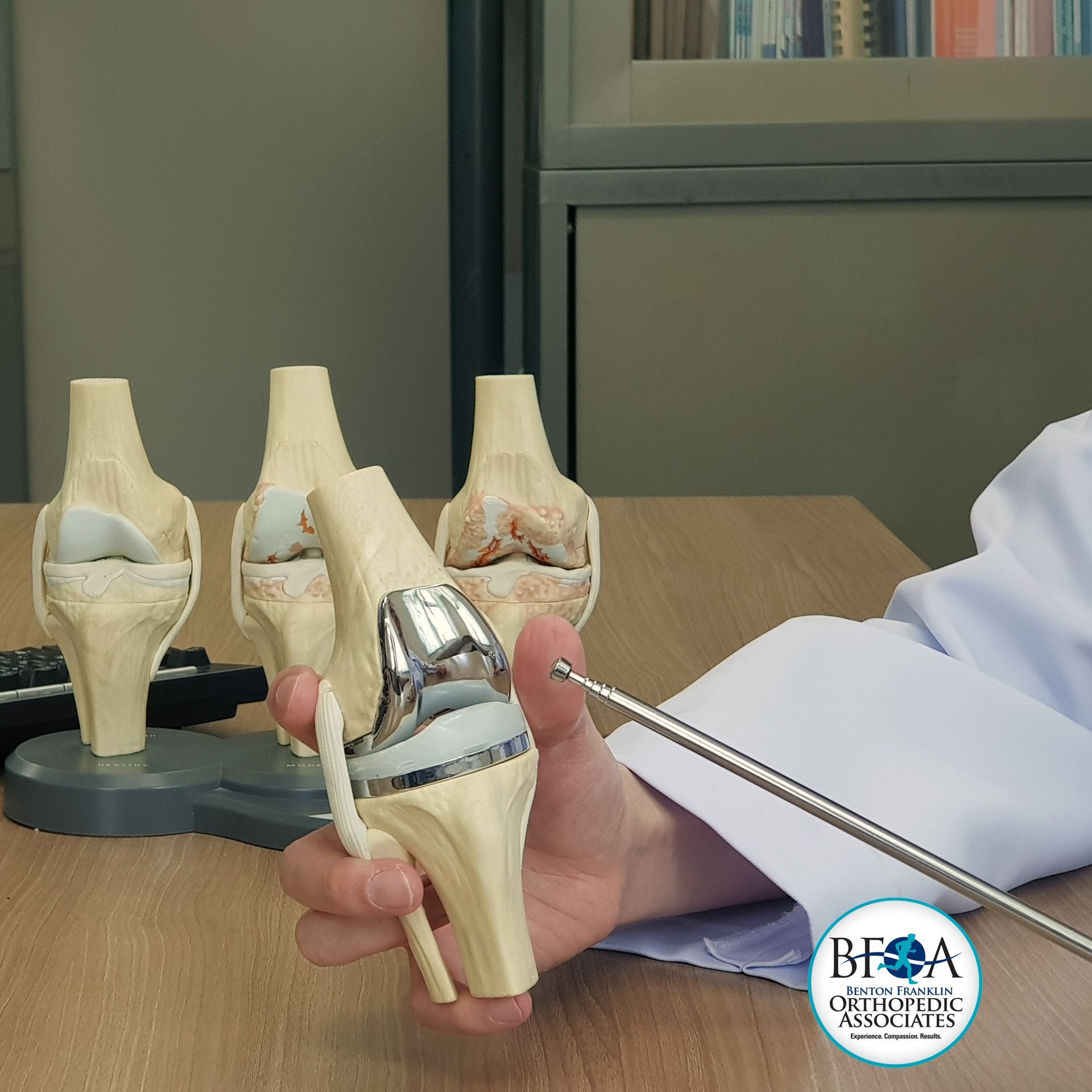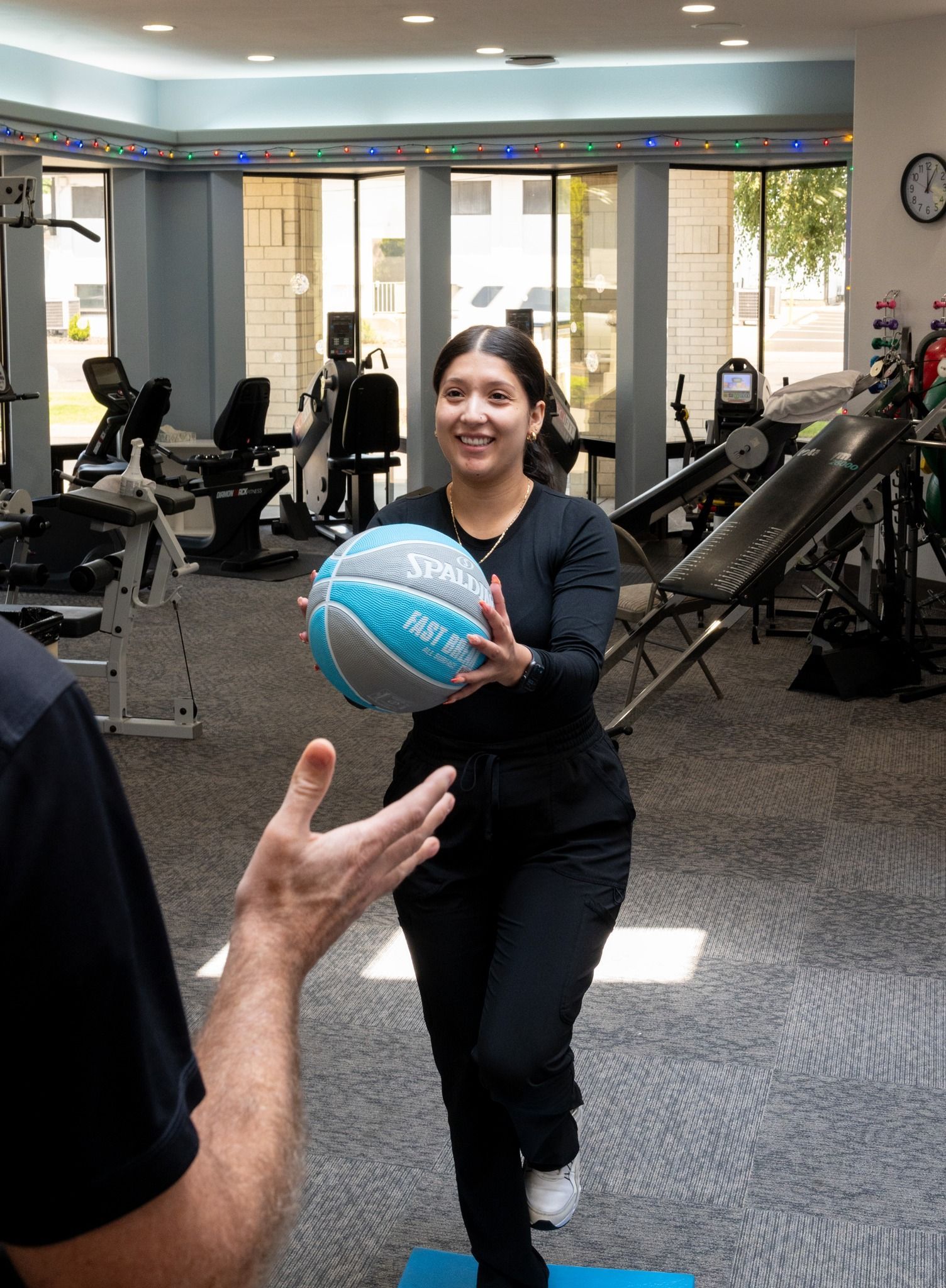Total Shoulder Replacement in Kennewick, WA
Understanding Total Shoulder Replacement: A Comprehensive Guide by Benton Franklin Orthopedic Associates

- Osteoarthritis
- Rheumatoid arthritis
- Severe rotator cuff injuries
- Fractures
- Osteonecrosis
- Trauma
- Overuse
- Fever lasting longer than 48 hours
- Heat around the shoulder joint
- Inability to move your shoulder, especially raising your arm above your head
- Lasting bruising and tenderness at/around the shoulder joint
- Pain lasting for more than a few weeks that does not improve with home remedies

The Role of Sports Medicine
Sports medicine plays a crucial role in diagnosing, treating, and preventing shoulder injuries, especially for athletes and active individuals. Specialists in sports medicine are trained to handle a wide range of shoulder conditions, from acute injuries to chronic issues like rotator cuff tears and shoulder instability. They work closely with patients to develop personalized treatment plans that may include physical therapy, minimally invasive procedures, and surgical interventions when necessary.
The Importance of a Shoulder Fellowship Surgeon
A shoulder fellowship is an advanced training program that orthopedic surgeons can pursue after completing their residency, typically a year of specific and expert training. This specialized fellowship focuses on the complexities of shoulder and elbow surgery, providing surgeons with in-depth knowledge and hands-on experience in treating a wide range of shoulder conditions.
Here are some reasons why a shoulder fellowship is important from Benton Franklin Orthopedic Associates:
- Expertise: Surgeons gain specialized skills in both surgical and non-surgical treatments for shoulder conditions.
- Advanced Techniques: Fellows learn the latest surgical techniques and technologies, improving patient outcomes.
- Research Opportunities: Fellowship programs often include research components, allowing surgeons to contribute to advancements in shoulder surgery.
- Comprehensive Training: Surgeons receive extensive training in diagnosing and managing complex shoulder issues, ensuring high-quality care for patients.
The Procedure:
The surgery usually involves the following steps:
- Preparation: Pre-surgical tests such as X-rays, CT scans, or MRIs are conducted to assess the extent of joint damage.
- Anesthesia: General anesthesia is administered to ensure the patient is asleep and pain-free during the procedure.
- Incision: A surgical incision is made to access the shoulder joint.
- Replacement: The damaged parts of the shoulder are removed and replaced with the artificial components.
- Closure: The incision is closed with sutures or staples, and a bandage is applied.
Recovery and Rehabilitation
Recovery from shoulder replacement surgery involves several stages:
- Hospital Stay: Patients typically stay in the hospital for a few days post-surgery.
- Physical Therapy: A crucial part of recovery, physical therapy helps restore movement and strength to the shoulder.
- Home Care: Patients need to follow specific instructions regarding wound care, medication, and activity restrictions.
Risks and Complications
As with any surgery, shoulder replacement carries potential risks, including infection, blood clots, and implant loosening or dislocation. However, these risks are relatively low, and most patients experience significant pain relief and improved function.
Total shoulder replacement can be a life-changing procedure for those suffering from severe shoulder conditions. By understanding the process, benefits, and risks, patients can make informed decisions and work closely with their healthcare providers to achieve the best possible outcomes.
If you have any questions or concerns about shoulder replacement surgery, feel free to call us Benton Franklin Orthopedic Associates at 509.586.2828 for more personalized information.









